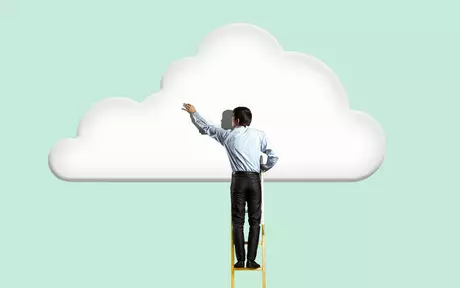What are the differences between CRM, SCM, and ERP, and do you need all three?
When an organization is looking to automate its business processes, the decision-makers generally look at enterprise resource planning (ERP), supply chain management (SCM), and customer relationship management (CRM) solutions. Here we are going to take a look at each of these systems, what they do, and how they differ.

What is ERP?
According to Gartner®, “Enterprise resource planning (ERP) is defined as the ability to deliver an integrated suite of business applications. ERP tools share a common process and data model, covering broad and deep operational end-to-end processes, such as those found in finance, HR, distribution, manufacturing, service, and the supply chain. ERP applications automate and support a range of administrative and operational business processes across multiple industries.”*
Essentially, ERP is a platform used by organizations to manage and unite various parts of the business, such as finance, HR, procurement, operations, and project management.
What are the benefits of ERP?
An ERP system provides a centralized, integrated organizational solution that automates functions, operations, and processes across the business. Having information stored in one system eliminates human error and duplication of data entry and shares information across the entire organization, allowing a single point of data truth. The key benefits of this include the following:
- The reduction in the total cost of ownership can help to boost margins.
- The single point of truth improves operational productivity as manual tasks are reduced, which saves time, resources, and costs.
- There is no need for large upgrade projects, as you will have immediate access to new features and functions.
- Improved people experience with enhanced tools will help to retain valuable talent.
- Increased agility helps organizations to survive and thrive in a turbulent market.
- Processes between departments are streamlined and integrated, giving decision-makers access to reliable data.
- ERP systems are scalable and can be customized to specific organizational requirements.
- ERP systems streamline procurement using historical requirement data to improve sourcing processes.
Click to read How Cloud ERP can change your organization for the better gated
What is Supply Chain Management?
Supply chain management is the process of managing the production flow of a good or service, from the sourcing of materials, supplies, or contracted services to delivering goods or services to the end customer while maximizing quality, delivery, customer experience, and profitability.
What are the benefits of SCM?
- Improved collaboration with suppliers helps to build better relationships with more flexibility and understanding of cost constraints and objectives.
- Working to the same standards as trusted suppliers helps to increase quality control.
- Reduced costs and improved cash flow as keeping a watchful eye on costs and prices can significantly benefit an organization’s liquidity.
- Improved risk mitigation due to better visibility from end to end of the supply chain.
- Increased agility, resilience, and flexibility.
- Better visibility and data analytics with tools that can monitor business performance.
What is Customer Relationship Management?
CRM software is used to manage and analyze customer interactions and data in real-time throughout the customer lifecycle. It aims to improve customer service and retention and drive sales growth. CRM systems are an important tool for sales and marketing teams as they unify customer data from different channels or points of contact. They also give salespeople detailed information on customers' purchase history and buying preferences.
What are the benefits of CRM?
- Better knowledge of customers leads to increased revenue.
- Improved management and insights into your sales pipeline.
- Easier to capture and nurture marketing and sales leads.
- Better able to build buyer personas that improve segmentation so better marketing campaigns can be created.
- Better team management leads to increased productivity.
- Improved customer service experience and reporting.
- Better able to analyze data.
Integrating systems
The global shift towards digital transformation means that all companies will eventually need an ERP system, an SCM system, and a CRM system or a single solution for all of them. An ERP system focuses on managing business processes that improve efficiency, agility, resilience, and flexibility. Integrating your ERP with an SCM system allows better visibility of the whole service delivery process. And integrating customer data from a CRM system means data is available across the organization. Combining your systems means that data is collected once during an initial transaction, stored centrally, and updated in real-time, which makes for a highly effective tool for overall business management.
How Unit4 ERP can help your business
Unit4’s next-generation enterprise software helps you deliver an exceptional People Experience for everyone your organization serves.
People Experience is a discipline applied to software development that prioritizes human impact — making work more productive, efficient, and inspiring. Our cloud-based enterprise software is easier to use and manage since real people, not just tech experts, use it. As a result, you can manage projects and processes that deliver value across the service industries quickly and flexibly, according to your specific needs.
You can transform work to be more meaningful through software that’s self-driving and adaptive, intelligently automating administrative tasks. This elevates engagement and helps you attract and retain the best people.
But People Experience is not only about personal motivation — it’s also about managers and staff working better together to improve organizational results. In all, freeing people to focus on what matters improves how work feels and means you can better serve your people. Click here to talk to sales.
- *Gartner Glossary, Information Technology Glossary, Enterprise Resource Planning (ERP), https://www.gartner.com/en/information-technology/glossary/enterprise-resource-planning-erp as of 24th April 2023. GARTNER is a registered trademark and service mark of Gartner, Inc. and/or its affiliates in the U.S. and internationally and is used herein with permission. All rights reserved-.





